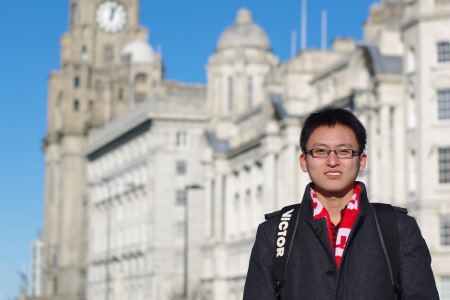
EFEO Field Scholar
23 SEPTEMBER 15
The Centre welcomes Mr. Yang Yang (University of Essex), holder of a two-month EFEO Field Scholarship. He will carry out research in Hong Kong between September and November 2015, in affiliation with the EFEO Centre and the CUHK University Service Centre for Chinese Studies, on a project titled "The Political Struggles of Chinese Trotskyism, in the 1970-80s, a Historical and Discourse Analysis."
Yang Yang writes: In the academic circles of contemporary Chinese Studies, Chinese Trotskyism is still a "mysterious" and "unspeakable" research area waiting for scholars to probe. The influence of Trotskyism had been minimal since the mainland Trotskyist movement was suppressed in 1952. However, Trotskyist ideas at least preserve positive historical and theoretical values from socialist roots, which should be righteously and honestly reappraised by serious academics in historical research, and not be falsified by political prejudice from Chinese official historiography. This research is to investigate the new political development of Chinese Trotskyism in Hong Kong as well as in the mainland from the mid-1970s to late 1980s by largely using newly-established Chinese Trotskyist collections, from which I will argue that, like many western styles of dissent and radical campaigns led by left intellectuals, the Trotskyist movement in China is not purely a political practice but more precisely a discursive and ideological encounter in a Chinese context: Communists as the rulers create political myth, but Trotskyists as the ruled attempt to demystify it by challenging the dominant Stalinist/Maoist ideology. Therefore, ideological disputes and de-stigmatisation of "the sins of Trotskyism" become main themes in Chinese Trotskyist activities after the 1970s. Moreover, the peripheral Trotskyist re-interpretation of the communist ideology will open a possibility to alternatively articulate the history of Chinese Communist Revolution. In this sense, this study of Chinese Trotskyism will be a "historiographical and ideological detour" of a marginalised group in the political history of modern China.
exchanges
Yang Yang writes: In the academic circles of contemporary Chinese Studies, Chinese Trotskyism is still a "mysterious" and "unspeakable" research area waiting for scholars to probe. The influence of Trotskyism had been minimal since the mainland Trotskyist movement was suppressed in 1952. However, Trotskyist ideas at least preserve positive historical and theoretical values from socialist roots, which should be righteously and honestly reappraised by serious academics in historical research, and not be falsified by political prejudice from Chinese official historiography. This research is to investigate the new political development of Chinese Trotskyism in Hong Kong as well as in the mainland from the mid-1970s to late 1980s by largely using newly-established Chinese Trotskyist collections, from which I will argue that, like many western styles of dissent and radical campaigns led by left intellectuals, the Trotskyist movement in China is not purely a political practice but more precisely a discursive and ideological encounter in a Chinese context: Communists as the rulers create political myth, but Trotskyists as the ruled attempt to demystify it by challenging the dominant Stalinist/Maoist ideology. Therefore, ideological disputes and de-stigmatisation of "the sins of Trotskyism" become main themes in Chinese Trotskyist activities after the 1970s. Moreover, the peripheral Trotskyist re-interpretation of the communist ideology will open a possibility to alternatively articulate the history of Chinese Communist Revolution. In this sense, this study of Chinese Trotskyism will be a "historiographical and ideological detour" of a marginalised group in the political history of modern China.
exchanges

